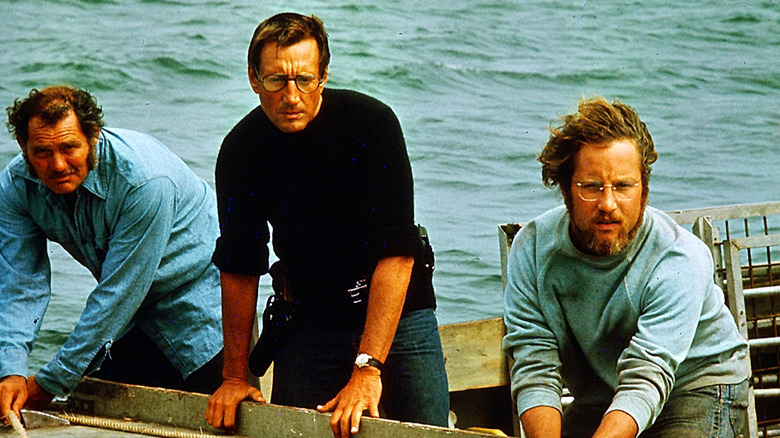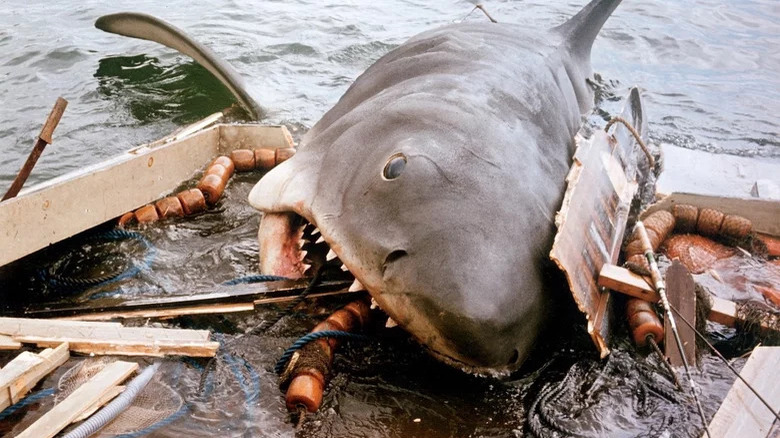Steven Spielberg Regrets The Negative Effect Jaws' Success Had On Sharks
Back in the Summer of 1975, when Steven Spielberg basically invented the concept of the blockbuster with "Jaws," he also managed to demonize sharks in the process. The tale of a giant great white shark that menaces the fictional beach community of Amity Island was based on Peter Benchley's novel of the same name and proved to be Spielberg's breakout success, despite its production being plagued by a frankly bewildering series of issues. Shot for $12 million, the film eventually brought in close to $500 million at the box office and became a genuine sensation thanks to Universal Studios' unprecedented marketing push.
With the iconic potential of its poster and John Williams' simple yet sinister score, "Jaws" was, in retrospect, destined to become a mega-hit. And with Universal spending $700,000 on TV advertising and producing a range of tie-in products, "Jaws" fever swept the US in 1975, changing Hollywood forever.
The film's massive success was bolstered when it clinched three Oscars at the 1976 Academy Awards. Since then, there's been an array of "Jaws" knock-offs while the original has remained in the public consciousness ever since its release. Unfortunately, it seems that success may have contributed to the ongoing decline of sharks in the real-world. Spielberg himself has claimed the "Jaws" phenomenon of 1975 and the movie's enduring appeal has directly contributed to the "decimation of the shark population." And it's not just the director that feels that way.
Did Spielberg cause the global decline in sharks?
Aside from Spielberg, Peter Benchley, author of the book on which the film is based, expressed similar regret for the effect his novel had on the shark population. After publishing the book and helping with the script for "Jaws," Benchley went on a decades-long apology tour, writing articles in defense of sharks and, according to The Salt Lake Tribune, even embarking on a tour of the US to give talks on the threat to the very creature that he'd made infamous.
Meanwhile, 47 years after his movie first debuted, Spielberg feels similarly remorseful for, as he sees it, helping to foster widespread fear of sharks and the resulting rise in shark hunting. As he told BBC Radio in 2022:
"I still fear [...] that sharks are somehow mad at me for the feeding frenzy of crazy sword fishermen that happened after 1975, which I truly and to this day regret, the decimation of the shark population because of the book and the film."
"Jaws" enjoyed such widespread success that there's no doubt it influenced how sharks, especially great white sharks, were seen by the public. And it's well documented that the global shark population has seen a massive decline since "Jaws" debuted, with one study finding that the number of "sharks and rays" has declined by 71% since 1970. But are Benchley and Spielberg to blame? It's hard to say. Director of the Florida Program for Shark Research, Gavin Naylor, told The Washington Post, "There was a reaction to the movie by a few people that just wanted to catch a few sharks. But that was happening long before 'Jaws.'" I think Spielberg's film didn't help, but the director might just be being a bit hard on himself.

